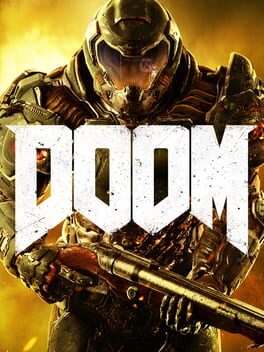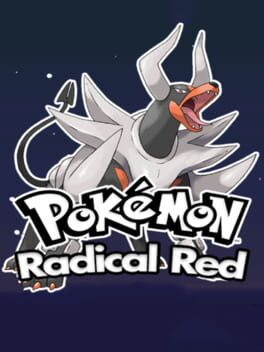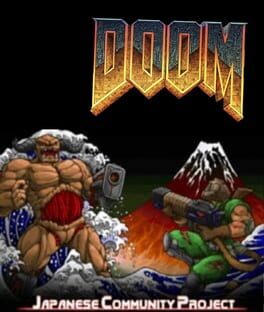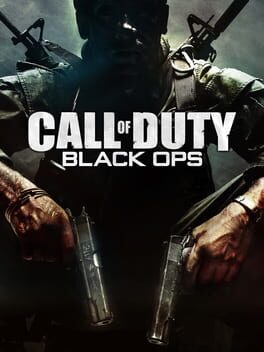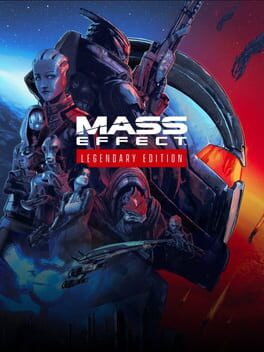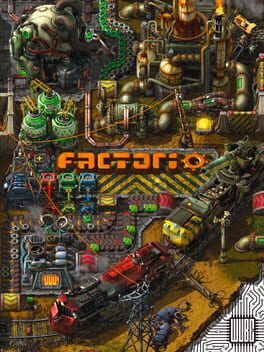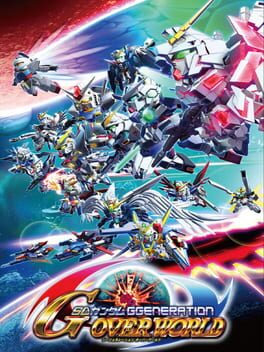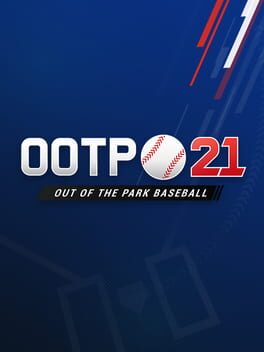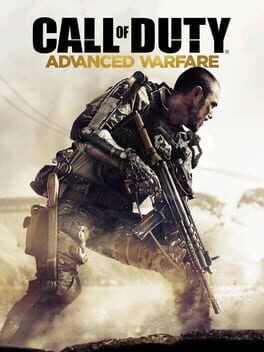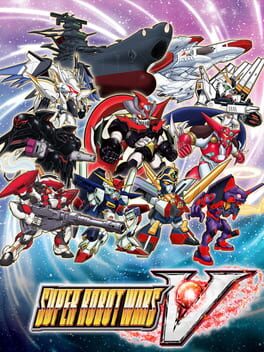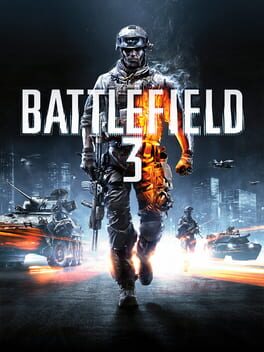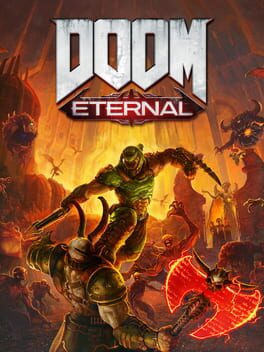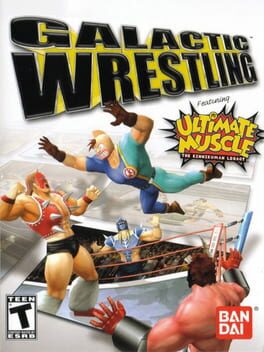2016
As a shooter nu-DOOM is undoubtedly better than old DOOM, as a game though there's a lot missing. Sure old doom is a fast-paced game and there's a lot of vector-based physics to the gameplay, but equally important are it's level philosophies. Old Doom levels were expansive and sprawling, and even in some cases non-linear. Equally important to your shooting ability was your knowledge of the map, what routes to take and when, resource-management for the harder encounters, when to grab the secrets, etc. 2016Doom has none of this, and most maps are combat tunnel to combat tunnel to combat arena to combat tunnel. 2016Doom is a strong enough shooter that this isn't a big problem enough to really tarnish the game, but it does limit it's potential by quite a bit. You don't have to ape the old doom 1:1, and I appreciate id is trying something different with the franchise, but the maps feels like a step-back in an important regard without anything equally good to replace it.
2020
had 2 stop bein a fuckin eater and realize this is real nice. addition of a minimal grinding mode is one of those bridge building moments between the avid hardcore targeting of this with the more casual audience who just wanna experience one of the more polished and passionate romhacks out there. im neither audience (my interest in mons starts and stop with competitive singles) but i had a blast running through this with that mode turned on and building around shit like bulk up ledian and aerliate swellow lmao. like a lot of romhacks these days you gotta like LOOVE offense as an archetype in teambuilding tho because that's where all the novelty in teambuilding is and all you can go against--the most emblematic change of this game's design isn't giving double iron bash to copperajah or delphox magic guard mind blown but that you can't learn recover on pex until after the elite four level cap lmao. the way showdown has influenced a generation of players to pocketwatch stall is so crazy. foucault was so right abt that panopticon shit turning everybody 2 a cop. real heads will sniff out shit like mudsdale getting slack off or regen teleport mega audino tho...deviancy always finds a way.
Love the woman who designed MAP11, will check out her other stuff. I don't have the patience in my life for MAP16&MAP17 though. Hitscan & Archville ambush map into a close-quarters slaughter map? No thanks
Shoutout all the homies who got unsolved racial trauma from seeing white kids with custom-made lynching emblems in lobbies.
2011
Some periods of my life, I identify with the Undead burg portion of the game--the sense that there's always something around the corner, the constant threat of the firebombs, the ways you can diverge off the beaten path and hit Blighttown, Darkroot Basin, or touch some of the Catacombs before anything. I also enjoy how openly some of the problems are positioned--there's a dragon torching all of the bridge, how are you going to get across? Just solid video game logic.
At other points of my life, I've identified the most with the darker, openly antagonistic areas of the late-game. The spookiness of Tomb of the Giants, the literal PS3 CPU scorching lava Lost Izalith, the deception of the Duke's archives; it's a game that assumes you're capable of handling it's more ambitious, difficult ideas of not just level-design, but also of narrative through level-design--even if New Londo Ruins is frustrating, the stillness that comes through the game in this section is so palpable, it feels only natural that there's just a black abyss at the bottom of it all.
At all points of my life though, I've always enjoyed Anor Londo, Sen's Fortress, and Ash Lake. The first two are self-explanatory, those two sections have more or less defined the Soulsborne genre, but Ash Lake also slaps just cuz it's got that rockin melancholic beach vibes that are hard to come by.
At no point of my life though have I fully enjoyed Dark Souls front to back though, there's always some point of 'disconnect' between what I'm feeling and what the game wants me to feel. Sometimes the early game just bores me to tears and I give up, other times the noticeable quality drop of the 4 Lords section slowly saps my will to keep playing, and other times I think "well, I haven't gone through Blighttown legit since my first playthrough, it can't be that bad' and immediately regret that thought as the framerate hits the floor. I can't really fault Dark Souls for this, its kinda how ambitious projects go, but it's a game I think everyone should play at least once, even if I have no specific drive to experience all of this again.
At other points of my life, I've identified the most with the darker, openly antagonistic areas of the late-game. The spookiness of Tomb of the Giants, the literal PS3 CPU scorching lava Lost Izalith, the deception of the Duke's archives; it's a game that assumes you're capable of handling it's more ambitious, difficult ideas of not just level-design, but also of narrative through level-design--even if New Londo Ruins is frustrating, the stillness that comes through the game in this section is so palpable, it feels only natural that there's just a black abyss at the bottom of it all.
At all points of my life though, I've always enjoyed Anor Londo, Sen's Fortress, and Ash Lake. The first two are self-explanatory, those two sections have more or less defined the Soulsborne genre, but Ash Lake also slaps just cuz it's got that rockin melancholic beach vibes that are hard to come by.
At no point of my life though have I fully enjoyed Dark Souls front to back though, there's always some point of 'disconnect' between what I'm feeling and what the game wants me to feel. Sometimes the early game just bores me to tears and I give up, other times the noticeable quality drop of the 4 Lords section slowly saps my will to keep playing, and other times I think "well, I haven't gone through Blighttown legit since my first playthrough, it can't be that bad' and immediately regret that thought as the framerate hits the floor. I can't really fault Dark Souls for this, its kinda how ambitious projects go, but it's a game I think everyone should play at least once, even if I have no specific drive to experience all of this again.
They weren't lying when they said the combat in this game is uh not good. BioWare as a studio was kind of in a weird spot when ME1 came out; the actual company itself was merging with a lot of EA subdivisions, and the contemporary projects around this time (Jade Empire and the Sonic RPG) are still the black sheeps of their catalogues. ME1 carries that 'black sheep' polish on it as well, despite it's post-hoc success. There's a certain...weirdness to the game--the cinematic dialog angles don't always work the best, the skills and talent trees are a mess of progressive scaling, what on earth is this equipment progression, the awkward sex scenes, etc.
What it does do really well though is carry the sense of ambition that is missing from those other projects--there's a lot of thought going into into the world here, and the political and historical tensions are shockingly deep for a new IP. Tolkenism aside (especially with the Krogans/Savage and Volus/Jewish connections) there's some engaging lore that reflect social realities in a surprisingly compassionate way? I mean it would've been very easy to write Wrex as this Brute With a Heart of Gold archetype, but as you move through his character arc you really come to understand how being in the midst of what's essentially genocide fuels his apathy and rage. The feeling of an unamended historical wrong colors a lot of his perception, and the game never condescends or pathologize him for feeling some time of way about it. The Krogans in general are not a bad take on the feelings of Diaspora, which is a big compliment to give a janky Sci-fi RPG from 2008. Teasing out the allegories and meanings behind the lore of Mass Effect was really the big positive of this replay, and honestly getting new Codex entries quickly became my favorite part of the game.
The actual plot itself was okay, nothing startling--there might be a way to read the Reapers as some sort of allegory for the Movement of History or something equally cringeworthy & Hegelian, but considering how the rest of the series threw that interpretation away it's not worth discussing.
Also kinda mad I accidentally romanced Ashley, I 'friendzoned' Liara trying to skip through some dialogue and didn't realize the game thought I had a connection with Ashley. Her only two positive traits are that she has a cute nickname for Shepard and she reads Whitman, otherwise she's an openly racist, condescending, and resentful person that kinda gives me the ick to be around. Kaidan is also just a bland character, if it weren't for Captain Anderson the whole human cast woulda been a miss.
What it does do really well though is carry the sense of ambition that is missing from those other projects--there's a lot of thought going into into the world here, and the political and historical tensions are shockingly deep for a new IP. Tolkenism aside (especially with the Krogans/Savage and Volus/Jewish connections) there's some engaging lore that reflect social realities in a surprisingly compassionate way? I mean it would've been very easy to write Wrex as this Brute With a Heart of Gold archetype, but as you move through his character arc you really come to understand how being in the midst of what's essentially genocide fuels his apathy and rage. The feeling of an unamended historical wrong colors a lot of his perception, and the game never condescends or pathologize him for feeling some time of way about it. The Krogans in general are not a bad take on the feelings of Diaspora, which is a big compliment to give a janky Sci-fi RPG from 2008. Teasing out the allegories and meanings behind the lore of Mass Effect was really the big positive of this replay, and honestly getting new Codex entries quickly became my favorite part of the game.
The actual plot itself was okay, nothing startling--there might be a way to read the Reapers as some sort of allegory for the Movement of History or something equally cringeworthy & Hegelian, but considering how the rest of the series threw that interpretation away it's not worth discussing.
Also kinda mad I accidentally romanced Ashley, I 'friendzoned' Liara trying to skip through some dialogue and didn't realize the game thought I had a connection with Ashley. Her only two positive traits are that she has a cute nickname for Shepard and she reads Whitman, otherwise she's an openly racist, condescending, and resentful person that kinda gives me the ick to be around. Kaidan is also just a bland character, if it weren't for Captain Anderson the whole human cast woulda been a miss.
2016
It's a lot like a STEM degree. It's fun recognizing problems, fixing them, optimizing your solutions, getting marketable skills, etc. However at a certain point the projects you're working on become more tedious than fun, especially when you start factoring in scale. Because you're spending so much time on something you find fundamentally draining, your interest in other hobbies decreases, you find doing actual life both too similar and too dissimilar from what the Factorio/STEM life is. And perhaps the biggest con, your social life takes a massive fucking hit--unless someone is also living the STEM/Factorio life, you're probably not gonna see them often.
Still though, in such a fundamentally unstable world, there's a definite appeal to being able to have a plan, follow through with that plan, and then see the fruits of that plan come to fruition. The industrial revolution happened for a reason right? We all need some rigidity, formality, and industriousness in the chaotic systems of our lives. I played the most Factorio when I was mentally rotting away at a bad coding job, physically isolated from my friends; in that period, the sandbox of problems and solutions was a perfect mental escape. Not to say that Factorio is only appealing when you're suffering from sadness (though this is very much a "breakup-game" if there was one), but that there's something distinct about the appeal that can really hit at certain points of life.
But IDK maybe I'm just projecting.
Still though, in such a fundamentally unstable world, there's a definite appeal to being able to have a plan, follow through with that plan, and then see the fruits of that plan come to fruition. The industrial revolution happened for a reason right? We all need some rigidity, formality, and industriousness in the chaotic systems of our lives. I played the most Factorio when I was mentally rotting away at a bad coding job, physically isolated from my friends; in that period, the sandbox of problems and solutions was a perfect mental escape. Not to say that Factorio is only appealing when you're suffering from sadness (though this is very much a "breakup-game" if there was one), but that there's something distinct about the appeal that can really hit at certain points of life.
But IDK maybe I'm just projecting.
A game for fans only, pretty tedious enemy placement but the sheer amount of Gundam stuff here is impressive, from the missions to the suits to the pilots, though the one more and tension systems make the game pretty easy. If the idea of Domon in a Brave Commander means anything to you it's worthwhile, otherwise it's a safe skip.
The dream game for the baseball history nerds/stat nerds, tons of cool features like having the option to simulate every season all the way back to 1871, full international teams, minor leagues, and of course the ultra maximalist stats and options for any sim game. Macro-manage from trades and scouting budgets all the way to micro-managing pitcher's fastball tendencies. I've always been more attracted to the arcadey and athletic version of sports games than any of the numbers below the belt, but this game has a certain undeniable charm to it. Like, the sheer amount of options and decision-making you can do is impressive, but the game is also very flexible in regards to how much of these options you want to have direct control over. It's really a 'you get what you put on' type of sim game, which is really the only respectable approach to sim games TBH. On account of being so open-ended, some people in the official forums of this game compare OOTP to being a robust and accessible text-RPG over an actual hardcore sports sim; it's a comparison I can understand but one I'm not quite sure I fully agree with.
All in all, the only thing I can say for certain is that Trevor Story is out for 9 months, will probably not sign an extension if we miss the playoffs this season, and that German Marquiez is the most inconsistent 'star player' I have seen in a sports team in a long-ass while. Go Rockies.
All in all, the only thing I can say for certain is that Trevor Story is out for 9 months, will probably not sign an extension if we miss the playoffs this season, and that German Marquiez is the most inconsistent 'star player' I have seen in a sports team in a long-ass while. Go Rockies.
Surprisingly fun, there's a lot of futuristic weapons and mechanics that go beyond the typical hitscan ironsights 90% of COD gameplay falls into--wallrunning, jump jets, verticality, and just having your wits about you more than ususal. Unfortunately activison greed corrupts this game with lootbox weapons that are straight up just better than what'll you have in most cases, which is a shame because I do really enjoy some of the design decisions here.
2018
IDK Man, after beating this once with bull rush spam on the shield I don't see myself playing this further. I think I would enjoy roguelites a lot more if they had a continue system, because after thinking about it , the challenge of 1CC'ing House of the Dead 2 versus getting the true ending to Hades aren't really all that different. The main difference is in getting to the end goal; HOTD2 has a continue system, which means that failing a 1CC isn't a net loss, as you can still play through this part of the game and get a little bit of practice against a troublesome attack, boss script, room, etc., Obviously if your goal is a 1CC run then the punishment of 'doing it all over again' is still present, but its this saving grace of the continue that lets you expand your game knowledge beyond what your current limitations are and you know, not die in the same way for the next run.
In Hades and other rougelites though, the lack of a continue means that whatever game knowledge you end up with at your progression wall is all the knowledge you'll get. In fact, dying and having to redo a run without necessarily knowing how to not die again is the primary stake for failure in rogueelites, and its this challenge of having to make do with observation, intuition, and prior game knowledge that makes roguelites uniquely challenging. For me though, observation and intuition are properly my worse methods of learning, and I generally learn the best through rapid experimentation and encyclopedic approaches. So for me roguelites are like trying to learn from a tutor who doesn't have the same learning style as me, which is why I've been turned off by pretty much all of them.
Hades doesn't do much to make accommodations for folks like me, and it shouldn't really have to it, but necessarily that also means I'm not really on-board with the project here.
In Hades and other rougelites though, the lack of a continue means that whatever game knowledge you end up with at your progression wall is all the knowledge you'll get. In fact, dying and having to redo a run without necessarily knowing how to not die again is the primary stake for failure in rogueelites, and its this challenge of having to make do with observation, intuition, and prior game knowledge that makes roguelites uniquely challenging. For me though, observation and intuition are properly my worse methods of learning, and I generally learn the best through rapid experimentation and encyclopedic approaches. So for me roguelites are like trying to learn from a tutor who doesn't have the same learning style as me, which is why I've been turned off by pretty much all of them.
Hades doesn't do much to make accommodations for folks like me, and it shouldn't really have to it, but necessarily that also means I'm not really on-board with the project here.
2017
This review contains spoilers
Classic late game SRW fatigue hit, don't particulary care to see the finales of Yamato and Trailblazer since I don't like these works normally, and certainly not under Banprestio's optimism. Unicorn was decently enjoyable, far less saccharine than the OVA, and the inclusion of Jerid's and Kamille's character arcs to the storyline was great. Can't comment much on Ange since I didn't take the route splits, but Banpresto's knack for world-building seems to have rationalized Ange's world for better and for worse. For better because the lore of Cross Ange is now connected with a lot of the metaphysical/cosmic lore of Getter and Mazinger, which plays to the inherent strength of SRW as a cross-over series. For worse because this connection makes this dimension/time-hopping sci-fi epic even more convoluted and takes away from the inherent goofiness and stupidity that is the point of Cross Ange. The Full Metal Panic plot was quite good, even as someone who is slightly familiar with the product, the narrative was akin to a decent 80-90's shojo in all the best ways. Nadesico was Nadesico, didn't seem to really shake up the formula in a great way; same deal with Brave Express, though admittedly I stopped before the Black Noir reveal. Can't comment much on the Mazinger/Getter plotline since apparently the finale takes them to a whole nother level. Not a bad game at all, and is a good step forward after Banpresto has enveloped themselves in the Z series for the past decade or so, but nothing that is really outstanding.
2011
I'm not sure if it'll be for good people or for bad people, but I'm certain that being forced to endlessly replay Rush Metro is apart of the afterlife.
2020
All the problems I had with 2016 got worse except now there's flow-breaking tutorials, weird weapon progression, 'stylish' cinematic flow breakers, shitty inertia-less dashes, intense gimping to justify a bloated upgrade system, railroaded combat arenas with environmental hazards, and 'platforming' gimmicks. Even the enemy designs are kinda worse compared to 2016. This gets a lot of praise for its combat philosophy of forcing players to use every tool available if they want to survive, and the different weapon upgrades offer some decent variety. The enemy weaknesses also give some strategic element to combat, a significant and logical progression from 2016's enemy design. All good improvements, sure, but its still bogged down by 2016's hallway-arena formula + glory kill system, in addition to the new roadblock of how absurd the upgrade system is in this game. I don't see it.
OHHHHHHH IT'S THE ULTIMATE MOVE
